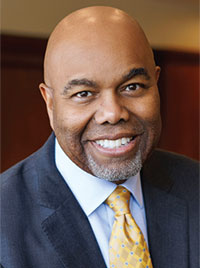 Paul Alexander MD, MPH Executive Vice President and Chief Health Equity and Transformation Officer, RWJBarnabas Health Dr. Alexander has been recognized in Becker’s Hospital Review as one of 75 Black Healthcare Leaders to Know and highlighted in ROI-NJ Influencers: People of Color 2022.
Paul Alexander MD, MPH Executive Vice President and Chief Health Equity and Transformation Officer, RWJBarnabas Health Dr. Alexander has been recognized in Becker’s Hospital Review as one of 75 Black Healthcare Leaders to Know and highlighted in ROI-NJ Influencers: People of Color 2022.
Working in the public health sector, Dr. Alexander saw firsthand how the variations in access to care and trust in the healthcare system impacted health outcomes. He firmly believes, “The struggles facing the health of marginalized communities necessitates a focus on the social determinates impacting health outcomes.”
Questions
What are some of the most pressing healthcare access and health equity challenges facing people from marginalized communities? What strategies do you believe are most effective in addressing these challenges?
Answers
Limited access to affordable healthcare and insurance. People from marginalized communities may not be able to access affordable healthcare. This can include a lack of health insurance coverage. Some strategies to address these obstacles may include expanding Medicaid coverage, implementing policies to reduce the cost of healthcare and increasing the availability of community health clinics.
Socioeconomic factors. Financial resources, education and housing significantly impact health. Increasing access to affordable housing, education and social welfare programs can help to create a more equitable socioeconomic outlook for people from marginalized communities.
Racism and discrimination. Racism and discrimination can negatively impact health by limiting access to health and social resources. Further, this ongoing experience can lead to weathering, or chronic stress, that wears down body systems and leads to health problems.1 To address this, we should create policies and programs that promote equity and work to eliminate implicit (or unconscious bias) in the healthcare system.
Limited cultural competency among healthcare providers. A lack of cultural competency—an understanding of someone’s experiences, background and culture2—can lead to inadequate care and poor health outcomes for people from marginalized communities. Recruiting and training healthcare professionals from diverse backgrounds and providing ongoing cultural competence training can help to address this challenge.
Limited representation in research. Limited representation in research of people from marginalized populations can lead to a lack of understanding of their specific health needs, limiting the development of effective interventions. Increasing the participation in research of people from underrepresented groups and ensuring that research is inclusive and culturally appropriate can help to overcome this obstacle.
For more information view Health Equity.